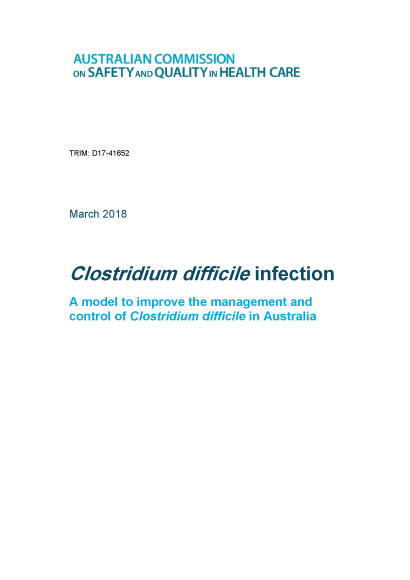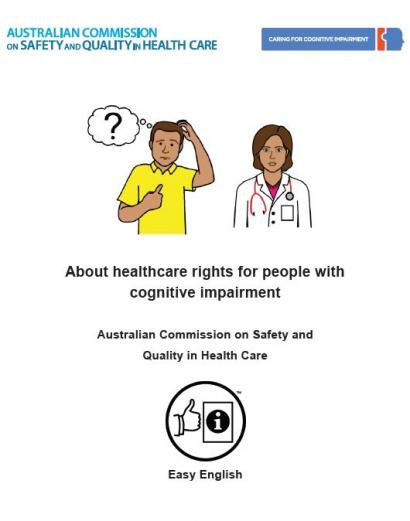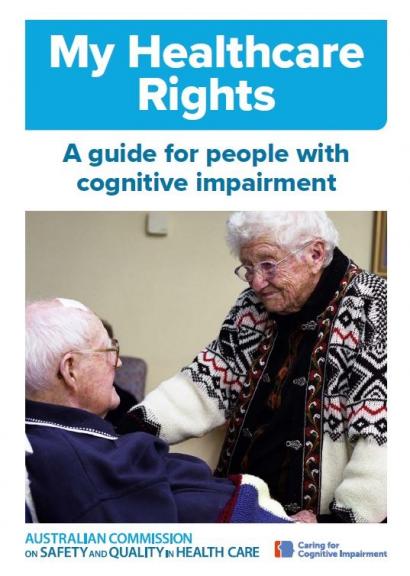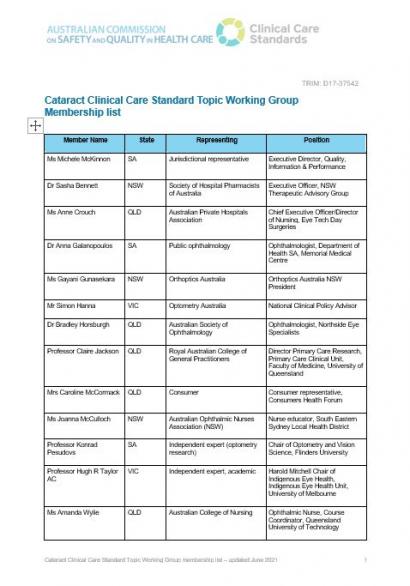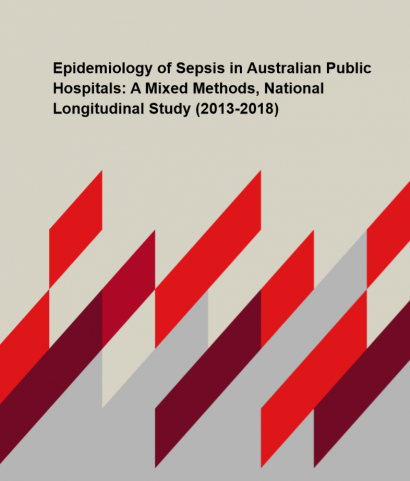This report describes priority actions to prevent and manage of Clostridioides difficile infection in Australia.
The tops Tips for Safe Health Care are now available in digital formats to display on screens.
This guide will help people living with cognitive impairment to get good health care.
A person might have cognitive impairment because they have:
- Dementia
- Intellectual disability
- A brain injury
This resource has been developed to provide healthcare information for people with cognitive impairment, their carers and family members.
A list of the Cataract Clinical Care Standard Topic Working Group members.
This report presents the first national epidemiological snapshot of sepsis and its impact on Australians and was prepared by Centre for Health Systems and Safety Research, Australian Institute of Health Innovation, Faculty of Medicine and Health Sciences, Macquarie University, Sydney, Australia .

